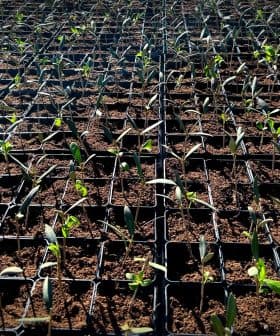Researchers Investigate Role of Certain Polyphenols in Obesity Management
Consuming polyphenols has been found to reduce body weight, body mass index, and waist circumference in adults, but not body fat percentage, according to a meta-analysis of 44 studies. The researchers suggest that polyphenols may impact obesity-related measures by affecting gut microbiota and inflammation, and further research on their role in obesity prevention and weight loss is needed.
Consuming polyphenols has been linked with a statistically, but not clinically, significant reduction in three of the four main obesity-related anthropometric measures in adults, new research published in Food Chemistry indicates.
The meta-analysis of 44 studies and 40 academic articles from Asia, Europe, the Americas and Australia found that polyphenol consumption decreased body weight, body mass index and waist circumference in adults. However, researchers found no significant effect on lowering body fat percentage.
“The main results of this meta-analysis demonstrated that intake of polyphenols significantly reduced body weight by 0.36 kilograms, body mass index by 0.13 kilogram-meters-squared and waist circumference by 0.6 centimeters compared to placebo treatments,” the researchers wrote.
See Also:Following MedDiet Fortified With Polyphenols Reduces Visceral AdiposityThey said a possible explanation for these findings might be the appetite-suppressing hormones in some polyphenols.
The researchers added that improved lipid and carbohydrate digestion, stimulation of energy expenditure, reduced oxidative stress and improved gut microbiota due to polyphenol consumption may also have contributed.
According to the World Health Organization, obesity has tripled globally since 1975. As of 2016, the last year the WHO has available data, more than 650 million adults were obese.
Being overweight and obese have overwhelmingly been linked with many chronic diseases, including cardiovascular disease, the leading cause of death worldwide.
The researchers concluded that consuming polyphenols should be considered as part of a dietary and lifestyle intervention to prevent and treat obesity.
Yi Zhang, the lead author of the analysis and a dietician, initially started the research due to a lack of safe and effective treatments and interventions for obesity and the scarcity of human clinical trials testing the impacts of polyphenols on obesity.
She told Olive Oil Times that the study mainly focussed on a group of polyphenols known as flavonoids and several non-flavonoids, including stilbenes, tannins and curcuminoids.
“Most research about polyphenols focuses on flavonoids and non-flavonoids,” Zhang said. “Drinking tea is the most popular way to consume polyphenols, along with eating fruits and vegetables.”
The analysis found that flavonoids – specifically, anthocyanidins (found in berries, cherries, dark leafy greens, eggplant, cabbage, purple potatoes and red onions), flavanols (found in types of tea, red wine and cocoa), flavonols (found in yellow and red onion, kale, spinach, broccoli and leeks) and isoflavones (found in legumes) – were the most effective in decreasing obesity-related measures.
The researchers hypothesized that this might be partially due to their impact on gut microbiota in the gastrointestinal tract and anti-inflammatory properties.
Zhang said the research focussed on studies where the polyphenols had been isolated and consumed in either capsule or tea form to investigate how the individual polyphenols impacted obesity without the confounding variables of how they relate to other micro- and macronutrients.
As a result, she did not investigate any phenolic compounds in extra virgin olive oil, the most prominent of which are tyrosols, simple phenols.
“My meta-analysis is about the pure polyphenols or pure extracts of single polyphenols, not the inclusion of the whole food,” Zhang said. “Most olive oil studies include all its polyphenols.”
However, she added, more research on the impacts of polyphenols on obesity should be done, specifically focussing on their role in obesity prevention in non-obese men and women and weight loss in obese men and women.
Zhang added that the impact of the individual polyphenols in olive oil should be further investigated, especially because of the known links between olive oil consumption and improved gut microbial profiles.
“There are many ways to decrease weight, especially through stimulating energy expenditure in the form of the gut microbiota… and reducing inflammation,” Zhang said. “This is the most interesting way olive oil polyphenols could impact obesity research.”









